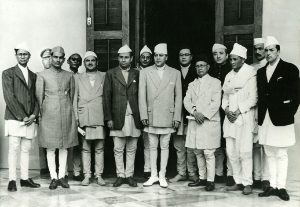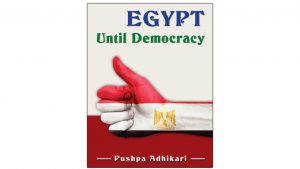
Different dynasties ruled Nepal since the 7th century BC. However, early in the 1950s, a democratic movement overthrew the Rana regime that ruled the country for more than 100 years. Then in 1990, a multiparty parliament with King Birendra Bir Bikram Shah as the head of state and an executive prime minister was founded.
While the parliamentary democracy in Nepal was affected by the decade-long Maoist war, shortly afterwards, King Gyanendra was installed as a ruler in 2001. After the signing of the Comprehensive Peace Agreement in November 2006 and the Constituent Assembly (CA) elections in 2008, Nepal was proclaimed a federal democratic republic. However, the first CA was unable to complete the historic duty of drafting a constitution and was dissolved in 2012.
Following the earthquake in April 2015, political parties were under pressure to speed up the constitution-writing process. Finally, on September 20, 2015, the new constitution was ratified by a resounding majority of voters, fulfilling the long-held desire of the Nepali people for a constitution to be created by an elected representative body.
Henceforth, democracy in Nepal has undoubtedly come a long way. However, the nation is still dealing with serious issues that could undo the progress gained over these past years. As Nepal moves forward, it is crucial to address these challenges and preserve the gains of the past to ensure a brighter future for its citizens.
So what are the current political challenges for Nepal?
Corruption

The Bhutanese refugee crisis in Nepal is a complex and protracted issue that has been ongoing since the early 1990s. Recently, this case has been recirculating in the international media because a group of swindlers led by Keshav Dulal and Sanu Bhandari stole a committee report, changed the number of refugees to 875 from 429, and added 18 pages before disseminating it to entice individuals to the US under the pretence of being Bhutanese refugees.
Corruption for long has had a detrimental impact on democracy in Nepal as well as its development and undermined the trust and confidence of people in their government. With such a high-profile case surfacing through all media, questioning the accountability of Nepali leaders, it has caused a significant humanitarian crisis and disillusionment among people.
Environmental degradation
The AQI has frequently ranked Kathmandu as the city with the most toxic air in the world. This has taken a significant toll on the public’s health. From reduced visibility in and outside the city to irritable eyes to increased risk of respiratory diseases, lost productivity due to illness, along with reduced cognitive function and developmental delay in children, the air quality in Kathmandu has become a major concern for the health and well-being of its residents.
You might be wondering how is this a threat to democracy in Nepal. But think this way. Politicians may be allowed to misuse government finances to travel to Australia for a month, but where are the rest of us supposed to go? How are we going to pay for this luxury if we can’t afford basic healthcare?
Economic crisis and inflation
In the current fiscal year, imports have decreased by about 18 per cent and the trade deficit has decreased by 17 per cent. But its toll has been seen on the government’s revenue as collection has gone down by 12.62 per cent compared to last year. In terms of government finances, this is the worst situation since the fiscal year 1967/68.

A serious liquidity problem has been affecting Nepal’s banks and financial institutions. More than 13 billion Indian rupees’ worth of interest on loans still owes repayment. Nepal is facing a shortage of INR 20 billion to facilitate pension distribution of the many teachers and civil servants in the state which has perpetuated poverty and led to high levels of unemployment.
Without the concentrated efforts from the government, private sector, civil society and international partners, the prosperous economy of the nation seems to be in question.
It does not need any explanation that the economy affects all other sectors of life, from individual to global levels. Hence, democracy in Nepal continues to be threatened for want of money.
Human rights violation
A 16-year-old boy was brutally beaten up by a man, Ram Binek Yadav, in Gaushala municipality, Manhottari for simply having a meal with an upper caste. Such is the deeply-rooted traditional caste system in Nepal, till this day and age. This is also a violation of human rights.
You know democracy and human rights go hand in hand. Hence, the violation of human rights continuing is synonymous with democracy in Nepal being under threat.
Other threats
Geographical barriers, high costs, complex legal procedures, corruption and delays in the justice system are other challenges to democracy in Nepal. They have resulted in limited access to justice and the judicial system, particularly for marginalised and disadvantaged communities as such. This has contributed to a lack of accountability and perpetuated injustice in the country.
Evidently enough, Nepal has been striving to consolidate its democratic system. However, addressing such socio-economic disparities, promoting inclusive growth and civic education, fostering consensus-building, safeguarding human rights and promoting good governance plays a crucial role in further shaping the future of democracy in Nepal.





















